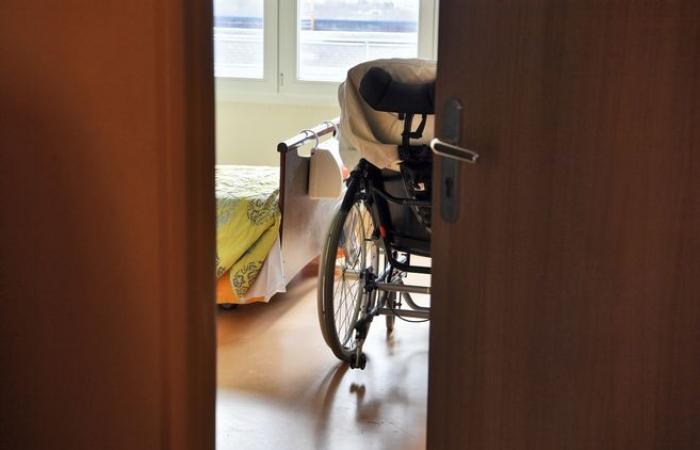
Around fifteen health, medico-social players, representatives of institutions or users, signed the Romain Jacob charter on September 26 in Nevers.
Care and medico-social actors from Niverna have signed the Romain Jacob charter, deployed by the Handidactic association. Written by and for people living with a disability, it aims to facilitate their access to care, in an approach based on several ethical principles.
Compliance with these principles has been assessed by people living with a disability every quarter, with the Handifaction barometer, since 2015. “They answer a questionnaire: do they have access to a caregiver? Was the support they chose accepted during the treatment? Have the treatments been explained? Was pain taken into account? », explains Pascal Jacob, the president of the association.
If some doctors may have had the impression of being “judged”, they accepted the charter, in 2017, on the condition of being trained, helped during consultations, and paid for them. “We convinced the doctors, we succeeded,” he rejoices. And added: “During the General Assembly of Medical Training and Research, on November 7, the universities of medicine, pharmacy, midwifery and odontology will sign the charter. 21 universities have already started. »
“Considerable” progress
The Romain Jacob charter has become a reference. Since 2020, it has been integrated by the High Authority for Health (HAS) into the criteria for the certification of health establishments. “The progress is considerable: in ten years, people living with a disability who have access to care have increased from 40% to 75%.” People accompanied by 20% to 88%, people benefiting from explanations regarding their care from 5% to 85%. Pain management from 0% to 50%.
Find all our articles on the month of inclusion in Nièvre in 2024
In September, Pascal Jacob and Régis Dindaud, territorial director of the Regional Health Agency (ARS) for Nièvre, set up a departmental committee to monitor this charter. It will make it known in Nivernais health establishments, train and bring together care and support professionals, represent users and disseminate adapted practices and successful initiatives such as Handibloc
or Mobilicare (**).
The members of the committee, including the former MP Martine Carillon-Couvreur, the vice-president and spokesperson for the France Victimes federation Jérôme Moreau, representatives of the CPAM, the MDPH and Chan, will meet several times per year. year and will ensure compliance with the priorities defined by the national committee. “Everyone is there to make it sustainable, it’s fabulous. »
System implemented in 29 hospitals, according to which an anesthesiologist meets the attending physician to define the interventions that can be carried out during anesthesia.
(**) Device which allows a neighbor to accompany a person living with a disability to the hospital, while being paid by the CPAM.
How was the Romain Jacob charter born?
The Romain Jacob charter has been his fight for ten years. “Life has changed in the house with two severely disabled children. I had to adapt, put myself at the service of my family,” says Pascal Jacob. Romain and Clément have cerebral palsy, autism spectrum disorders and are epileptic.
Pascal Jacob founded the Handidactic association.
While working, the father devoted himself to creating daycare centers, a living center for adults, and the first reception and educational integration center in the city of Paris.
“One day, Romain had to operate on his wisdom teeth. No hospital wanted it. A doctor from Pitié Salpêtrière accepted, but they made a mistake with the anesthesia. They did not take into account treatment for epilepsy.” Romain remains in intensive care for eight months.
“I was frightened. They didn't know how to take care of it. When he screamed, they closed the door. » Pascal Jacob is writing a report on support for people living with disabilities in the hospital environment. He was commissioned by the government in 2008 to create home hospitalization (HAD) in the social and medico-social sectors.
Signed in 2014
“Roselyne Bachelot (then Minister of Solidarity and Social Cohesion) asked me to produce another report, on access to care and health for people living with a disability. I had seen the attractiveness of the drawers for state reports: I said yes, on the condition of making a film. » The report, built with 1,500 people in France, was presented to Marisol Tourraine, then Minister of Social Affairs, and François Hollande in 2012.
During a stay in Reunion Island for the making of the film, Pascal Jacob and Chantale de Singly, former director of the Indian Ocean Regional Health Agency (ARS), brought together “all the people who deal with disability”. “200 people were present. We discovered that professionals who took care of the same person did not know each other, did not understand each other, did not know how to help each other.”
They decide to write an ethical charter for access to health for people living with disabilities. The latter was signed in 2014. “Six weeks before, Romain died. He was refused three times by hospitals. When he was finally accepted, it was too late. The night of her death, Marisol Tourraine called me and advised me to give her name to the charter,” confides the septuagenarian. The Romain Jacob charter was born.Élisa Especially
France





